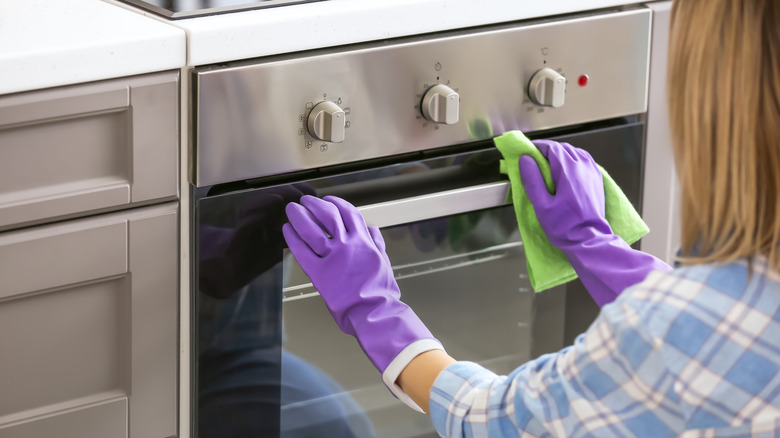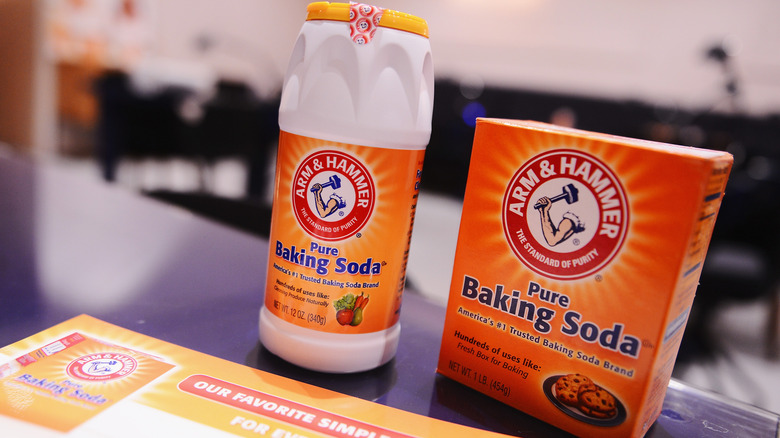The Chemical-Free Way To Clean Your Oven
Cleaning the oven is a messy job. Over time it's not uncommon for burnt-on sugar, grease, cheese, sauce, and more to accumulate on the bottom of the kitchen appliance, making the task less and less appealing the longer it is put off. While many modern ovens come with self-cleaning features that can be used to avoid scrubbing, Oven Clean, a UK-based oven-cleaning service, notes that these settings are less than ideal. In order to self-clean, ovens lock and become super-heated, essentially incinerating all the crumbs and stuck on food residues. Although this may sound convenient, this process can be dangerous as the hours of high heat can pose a fire risk and the burnt-off food can send unpleasant smells and potentially noxious fumes into your house, including carbon monoxide.
The alternative though is cleaning the oven by hand, and many of the soaps and solvents sold for that purpose are an equally distasteful option as they're made with harsh chemicals. According to Poison Control, the corrosive ingredients that make grill and oven cleaners effective also makes them poisonous. Even if not ingested, the chemicals can burn skin or eyes if they make contact, and their fumes can cause damage to the respiratory tract.
Thankfully, there is another way you can clean your oven without resorting to incinerating heat or harsh chemicals, and it's probably already sitting in your fridge. The answer, believe it or not, is baking soda.
Cleaning up safely
Everyone has seen the way baking soda and vinegar bubble up when you drop them together in a classroom volcano, but fewer people know that same bubbling foam can also remove stuck on grime. According to Architectural Digest, the simplest, safest way to clean your oven involves two ingredients: water and a standard rag and rubber gloves. Just mix up a one-to-one ratio paste of baking soda and water and spread it around the inside of your cold, empty oven, layering it on thick on particularly messy spots and avoiding the heating elements.
From this step there are a few options for how to best remove the paste and stuck-on grime. Either way, you will need to wait for a while, so you'll have plenty of time to soak your oven racks in water and dish soap. While one option is to let the paste sit for about 12 hours before wetting it down and scrubbing it off — with the assistance of vinegar if necessary — the other, explained via Pioneer Woman, is to let it sit for a shorter time, then using a spray bottle or rag to apply vinegar to the paste. The foaming reaction will loosen the grime faster and allow you to easily wipe the surface clean.
Although this process is safer than extreme heat and noxious chemicals, it can still be messy and time consuming. So once you're done, make sure to try this tip to keep your oven cleaner longer.

